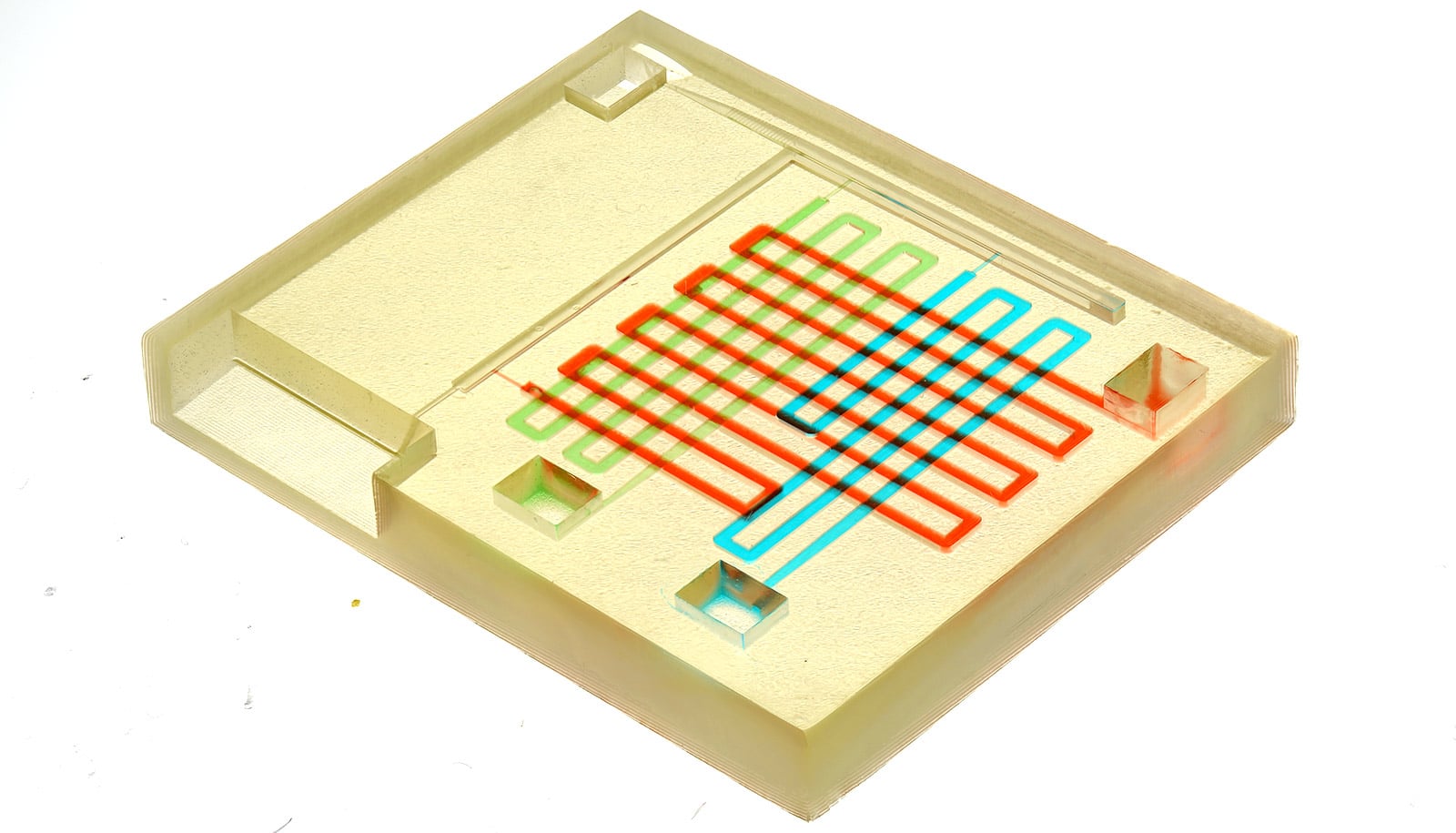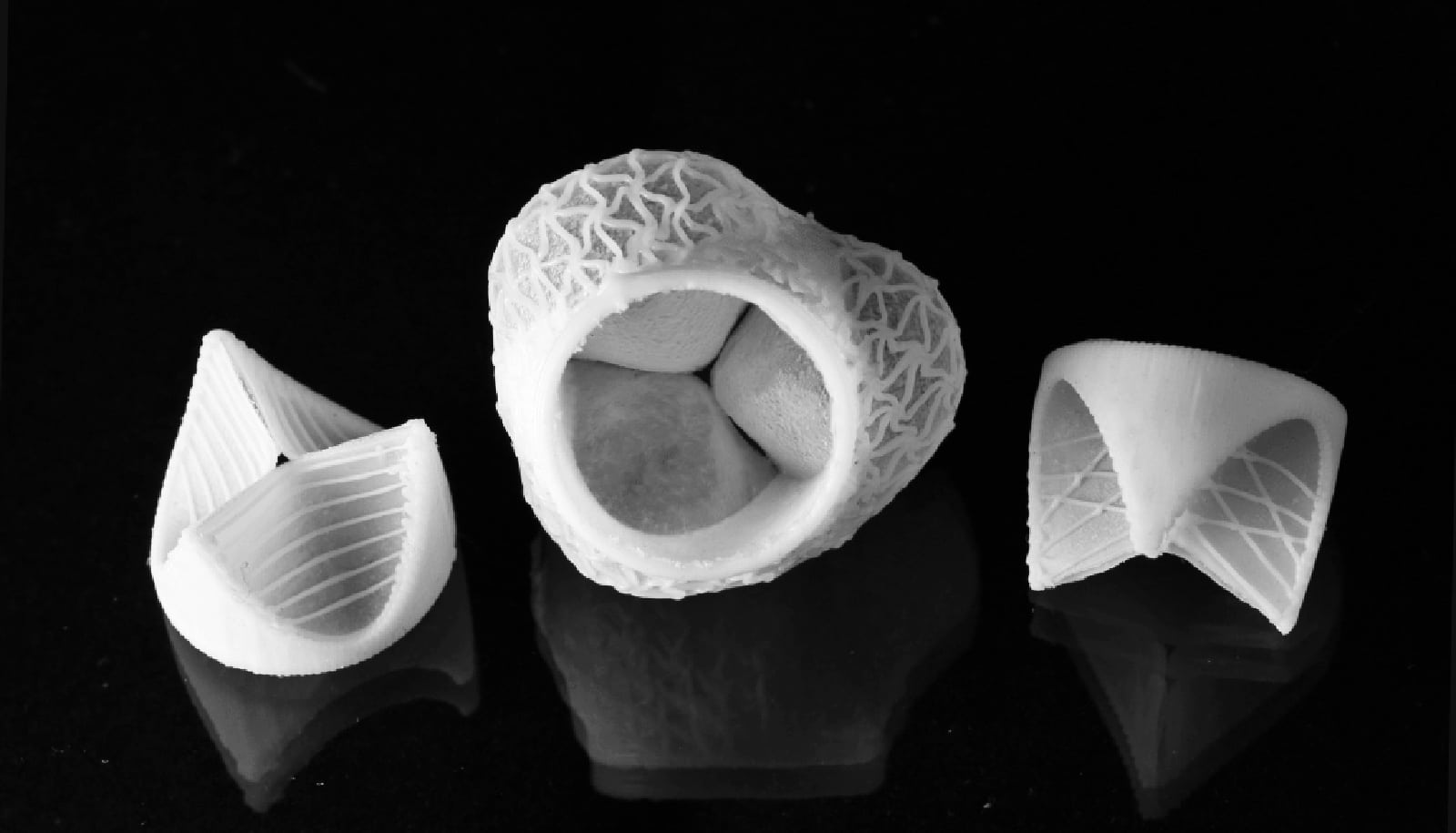
The lab on a chip works through capillary action—the very phenomena by which a spilled liquid on the kitchen table spontaneously wicks into the paper towel used to wipe it up. (Credit: McGill)
Lab on a chip may offer made-to-order medical testing
A new "lab on a chip" that can be 3D-printed in just 30 minutes could make on-the-spot medical testing widely accessible.
A new “lab on a chip” can be 3D-printed in just 30 minutes, researchers report.
The breakthrough in diagnostic technology has the potential to make on-the-spot testing widely accessible.
As part of a recent study, the researchers developed capillaric chips that act as miniature laboratories. Unlike other computer microprocessors, these chips are single-use and require no external power source—a simple paper strip suffices.
The chips function through capillary action—the phenomena by which a spilled liquid on the kitchen table spontaneously wicks into the paper towel used to wipe it up.
“Traditional diagnostics require peripherals, while ours can circumvent them,” says David Juncker, chair of the biomedical engineering department at McGill University and senior author of the study in the journal Advanced Materials .
“Our diagnostics are a bit what the cell phone was to traditional desktop computers that required a separate monitor, keyboard, and power supply to operate.”
At-home testing became crucial during the COVID-19 pandemic. But rapid tests have limited availability and can only drive one liquid across the strip, meaning most diagnostics are still done in central labs. Notably, the capillaric chips can be 3D-printed for various tests, including COVID-19 antibody quantification.
The study brings 3D-printed home diagnostics one step closer to reality, though some challenges remain, such as regulatory approvals and securing necessary test materials. The team is actively working to make their technology more accessible, adapting it for use with affordable 3D printers. The innovation aims to speed up diagnoses, enhance patient care, and usher in a new era of accessible testing.
“This advancement has the capacity to empower individuals, researchers, and industries to explore new possibilities and applications in a more cost-effective and user-friendly manner,” Junker says.
“This innovation also holds the potential to eventually empower health professionals with the ability to rapidly create tailored solutions for specific needs right at the point-of-care.”
Source: McGill University
The post Lab on a chip may offer made-to-order medical testing appeared first on Futurity .
Share this article:
This article uses material from the Futurity article, and is licenced under a CC BY-SA 4.0 International License. Images, videos and audio are available under their respective licenses.
Related Articles:
Custom 3D-printed heart valves fit perfectly
July 23, 2019 • futurityCould simple tests predict which OCD treatment will work?
Aug. 31, 2020 • futurityLinks/images:
- https://doi.org/10.1002/adma.202303867
- https://www.futurity.org/covid-test-vaccines-viruses-2678392/
- https://www.futurity.org/3d-printing-human-organs-tissue-2530272/
- https://www.mcgill.ca/newsroom/channels/news/made-order-diagnostic-tests-may-be-horizon-353167
- https://www.futurity.org/lab-on-a-chip-medical-testing-3007172/
- https://www.futurity.org


